#divinity: dragon commander
Explore tagged Tumblr posts
Text

Dragon and his Princess, because Ophelia is my other undead object of obsession. A commission from Ace.Vermilion who indulged my need of biblically accurate Dragon Commander lore and Frankenstein!Ophelia (best Ophelia outcome hands down) Did I mention her golden endoskeleton weights like 3 tonnes?
#I never knew ophelia could be any hotter yet lo and behold#She tops AND speaks Shakespearean#I'm falling in love with this woman again#Divinity: Dragon Commander#Dragon Commander#oc: raen the dragon commander#Ophelia dragon commander#Undead Princess Ophelia#commissioned art
8 notes
·
View notes
Text
Ok I guess I realized I have some brief notes for stuff I've played since June that hasn't made it onto here, so let's just do some quick ones starting with the category in my notes for games I played on Steam that I then hid from my library because I don't see myself ever playing them again:
Teleglitch: Sounded interesting forever ago, didn't really like the vibe or the way it played
Ryse: Son of Rome: Incredibly bland and mediocre interactive cutscene with bad dudebro energy
Rise of the Triad (2013): Not interesting enough that I even remember what I did or didn't like
Fallen Enchantress: Same, but also kinda janky
Cultist Simulator: Strong contender for most irritating/frustrating thing I've played this year because the UI sucks and is completely unexplained, and I uninstalled it pretty quick
Arcana Heart 3 LOVE MAX!!!: Came in a bundle, seems like a fighting game that feels worse to play than other options while also being too waifu heavy for me
Wolfenstein: The New Order: Surprisingly boring and unsatisfying for a game where you play as a Jewish person running around killing Nazis, not bad, just bland
Tyranny: Probably has some interesting things in it because it's Obsidian, but I just wasn't feeling it a few hours in (and I have a strong bias against real-time-with-pause to begin with because it's terrible)
Divinity: Dragon Commander: I like the premise and what I saw of the characters and story outside the game, but the game itself feels pretty clunky bad to play
Code Vein: I hit alt-F4 and uninstalled it before finishing the character creator because it made me physically uncomfortable
Injustice 2: The first game was surprisingly fun and had a surprisingly good story, but this one looks uglier, didn't feel great to play to me, and the load times were absolutely atrocious even from an NVMe drive
Borderlands 3: I cannot stress enough how good the gameplay feels and how incredibly awful everything else is. They polished the gameplay really well, made interesting skill trees and added some good mechanics, and just running around doing stuff in the world feels pretty great...but the writing is brain-meltingly awful, I either hate or don't care about every single character I met in the first five hours, and the UI has somehow gotten even worse than the previous games
#borderlands 3#injustice 2#code vein#divinity: dragon commander#tyranny#wolfenstein: the new order#arcana heart#cultist simulator#fallen enchantress#rise of the triad#ryse: son of rome#teleglitch
14 notes
·
View notes
Photo

Divinity: Dragon Commander
1 note
·
View note
Text
Meredith's Mistakes: A Study in Power
The full-scale rebellion of mages across Thedas against the Circle system of the Andrastian Chantry officially begins in 9:40 Dragon, with the uprising at the White Spire and a vote by the College of Enchanters to separate from the Chantry. But the seeds of the rebellion are planted years earlier in Kirkwall, where the extreme Circle policies of Knight-Commander Meredith Stannard lead to the destruction of the city’s Chantry by apostate mage activist Anders.
Knight-Commander Meredith’s reign of terror over her Circle and over Kirkwall itself is abruptly ended during her battle with Hawke when the sword forged from a red lyrium idol found in the Deep Roads corrupts her totally, turning her to a frozen lyrium statue herself (though as we have more recently learned, it did not destroy her completely). This was catalyzed by the destruction of the Chantry, Meredith’s invocation of the Right of Annulment, and the mages’ subsequent resistance. But had all that not happened the way it did, I believe that an end to Meredith’s rule had already become inevitable. The Knight-Commander makes several grave mistakes in maintaining her power, some of which begin years before she acquires the idol, but are dramatically escalated by her exposure to red lyrium.
And it’s because of those mistakes that the mage rebellion truly has its roots in Kirkwall.
Circle Dispensation
Throughout the Dragon Age universe we meet mages like Wilhelm Sulzbacher, Ines Arancia, Severan, Vivienne, Finn, and Wynne: Circle mages given special dispensation to travel, work, and even live outside the Circle proper.
This privilege proves to be a highly effective tool of Circle control, and a critical part of the Chantry's strategy for keep mages contained.
Prior to the the destruction of the Kirkwall Chantry, it seems that this sort of thing is quite commonplace in most Circles. Not for most mages, of course. But for well-established Enchanters who have proven their magical competency, and most importantly their loyalty, certain privileges may be afforded. Thus, compliance is incentivized for any mages who might aspire to some limited but additional freedoms and are willing to toe the line to get them.
In most cases, these mages are still denied the rights of non-mages: to own property, to hold a title, to marry and raise a family. (Wilhelm is a notable exception to the latter, but this seems rare.) But a mage like Ines Arancia might be afforded the opportunity for field research and publication. A mage like Wynne or Finn might gain the prestige of traveling at the side of a hero. And a mage of ambition such as Severan, Wilhelm, or Vivienne might even attain the title of Court Enchanter, serving at the side of a King or an Empress (even if the title is in many cases purely ceremonial) and mingling with the court.
Here's a basic principle that is critical to understanding politics, real or fictional: most people are primarily concerned with the material wellbeing of themselves and their immediate loved ones. Many people will engage in various forms of activism in the hopes of improving conditions for themselves and others, but truly revolutionary activity is an extremely unappealing prospect for the average person most of the time. And it's not because they're callous or apathetic. It's because they have too much to lose. Revolution is bloody and horrific and sometimes necessary, but there are always heavy costs to be weighed against the potential (and by no means guaranteed) gains.
It is no accident that of the mages we meet and get to know personally, the ones with the most to say in support of the Circle are also the ones who have gained significant privileges within that system—and who therefore have the most to lose from an attempted rebellion which may not succeed. I have written before about the conversation between Wynne and the Warden in Awakening, in which Wynne expresses concerns about the College of Enchanters potentially voting to break away from the Circle. "The mages will never be free," she says. "The Chantry would never allow it. Our only hope for survival is to show them we can be trusted."
Notably, at this point in time, even Anders will agree that this is "madness" and "a recipe for disaster." Why would Anders, of all people, say this, given how adamant he is about his own freedom? Awakening Anders sums up what he wants out of life pretty well when he says, "All I want is a pretty girl, a decent meal, and the right to shoot lightning at fools." He's being glib here, of course, and there's probably a lot more going on under the surface (we're given to understand later that Anders has always had a lot of anger at the Circle), but I do think it's accurate to say that at the moment he's mainly concerned with maintaining his own freedom. And while he and Wynne have very different opinions of the Circle generally, I think Anders doesn't at this time relish the thought of a full-scale war, with Templars roaming the land hunting renegade mages. You can see how that might actually make it harder for him to fly under the radar as an apostate.
Nearly a decade later, Vivienne will express her own opinions on the mage rebellion that is already well underway, calling it "A failure of perspective that infected Circle leadership." Unlike Wynne, Vivienne's objections are less about the unstoppable power of the Chantry and more about the attitudes the general population holds toward magic. "Kirkwall gave the world a reason to remember its fear of magic," she says. "A mage killed hundreds with a snap of their fingers. …By voting when they did, my colleagues all but declared war upon the ordinary people of Thedas, a war in which we are outnumbered a hundred to one." Vivienne's argument (if you take it at face value) is that the rebellion was poorly timed and generally unwise. "By all means, protest abuses by templars," she says. "Just don't do it in a way that suggests mages support wholesale murder."
Notice that Wynne does not say that mages shouldn't be free but that they won't be free. She does not say that bowing to Chantry oversight is the right thing to do but that it is mages' only hope for survival. Vivienne's objection (as stated, anyway; Vivienne’s motives are complicated and another post for another day) is not that the vote for independence supported murder but that it appeared to support murder. In these conversations, the argument is never really that mage rebellion is immoral, but that it is unwise, impolitic, bad optics, bad public relations, not smart.
A point on which even Anders once agreed.
And why would a full-scale mage rebellion look like the best option to Wynne and to Vivienne—to mages who have spent years and decades working to gain the respect and trust required to be granted the maximum amount of lenience the Circle allows? Why would they throw away what they have gained for a war they don't believe they can win?
If enough mages believe that compliance is a more reliable strategy than resistance, you won’t get the critical mass for a rebellion.
But even Wynne fights back when the Right of Annulment is invoked upon her Circle.
One of the most foolish things a ruler can do in terms of maintaining their own power is to allow conditions to deteriorate to the point where their subjects feel they have little or nothing left to lose. And that's exactly what happens in Kirkwall.
This is Knight-Commander Meredith's first mistake: she fails to positively reinforce compliance.
We get the sense that the Gallows was always a strict Circle. There's talk of the Knight-Commander's severity when Hawke first arrives, long before Meredith gets her hands on red lyrium. The kind of special dispensation that Wynne and Finn enjoy from the Fereldan Circle is likely far less common here.
There is some evidence that such things occur under Meredith, even post-lyrium-sword, however rare it may have been. Notably, if Bethany Hawke goes to the Circle, she is given permission to go with Hawke to the Vimmark Mountains, and to Chateau Haine. In terms of game mechanics, this is obviously done so that the player can have a bit more time with their sibling as a companion, and for the Legacy DLC specifically, the Carta has actually been breaking into the Circle trying to capture Bethany, so it does make some sense that Meredith would want that dealt with, enough to let Bethany go with Hawke to deal with it.
But Chateau Haine is purely a pleasure trip, and Bethany is still allowed not only to leave the Gallows, but to travel outside Kirkwall with her sibling. It would be very easy for her to run away if she chose, and she would have a solid head start on the templars pursuing her. Bethany has demonstrated herself a loyal Circle mage at this point, with no intention of escaping, but I think that's not all that's going on here.
Let's talk about Emile de Launcet.
In Act III, Hawke is given the task—or has their arm twisted, depending on how you're playing—of tracking down three runaway mages. The first two, Huon and Evelina, are a blood mage and an abomination respectively and attack, leaving Hawke no choice but to kill them. The third, however, is a man named Emile de Launcet, who reveals that having been in the Circle since he was six years old, he simply wanted to live a little. He also reveals that he himself spread the rumor that he is a blood mage, hoping that it would make him seem "dangerous" and therefore more attractive to women.
It's easy to write off Emile as simply a fool, but I think there's more going on here.
How does a man who has spent almost his entire life in the Gallows, who is well-acquainted with the Knight-Commander's policies, think that telling people he's a blood mage is a good idea? In Act III? By this point in the game, it is well known that Meredith is accusing anyone who sneezes of being a maleficar; most of the Circle mages live in terror of just such an accusation. What in the Maker's name could possibly make this man believe that labeling himself a blood mage wouldn't get him killed, or made Tranquil, never mind caught?
Unless Emile de Launcet, the son of rich Orlesian expats (the Comte and Comtess Guillaume and Dulci de Launcet) has always received more leniency in the Circle than the average mage.
Bethany Hawke, daughter of Lady Leandra Amell who has come home to reclaim her family estate, sister of the Champion who saved Kirkwall from Qunari invasion, seems to quickly decide that life in the Circle isn't so bad. Undoubtedly, a large amount of Bethany's relief is she doesn't have to hide anymore and be constantly protected by everyone around her, and she appreciates the opportunity to be around other mages. But she also says in party banter that "The idea of the Circle is much more terrifying than the reality of it." She frustrates Anders with her acceptance of her new life, and judging by Ella's words, Bethany seems to encourage the apprentices she mentors to accept theirs as well.
Bethany and Emile's experiences with the Circle do not fully reflect what we know of the Gallows, and I think that's because they're both from noble families. This is important for other reasons too, and we'll come back to it.
But for now, what's worth noting is that the only examples we have of Meredith's leniency are for political expediency and accidents of birth rather than actively rewarding compliance.
I think it’s safe to say that even before things escalate to all mages confined to their quarters, not a lot of mages in the Kirkwall Circle are going out on leave for botanical studies. But as her paranoia deepens due to her exposure to red lyrium, as she begins to see blood magic and demons around every corner and in every person, Meredith stops rewarding compliance at all. There are no “good mages” and “bad mages”; there are only mages, not a one of whom can be trusted. Fewer and fewer privileges are afford to any mages in the Gallows, until eventually it is clear that all mages will be punished simply for being mages. There is no incentive for "good" behavior.
That's how you brew a rebellion, kids!
And when she invokes the Right of Annulment, not one of those mages has anything left to lose.
I am far from the first person to point out that Anders spends his first seven years in Kirkwall attempting to change things for the mages by relatively nonviolent means. He wins massive goodwill from Kirkwall’s lower classes with his medical clinic in Darktown. He appeals to the upper classes the only way he can reach them, through his impassioned writings on mage freedom. (And the upper class is a critical piece of the puzzle here, but we’ll come back to that.) He works with an organized Mage Underground to rescue as many individual mages from the Circle as possible.
But by Act III, the Mage Underground has been completely dismantled, and ambient dialogue in the Gallows tells us that Meredith has confined all mages to their quarters and has already sent for the Right of Annulment, well before Anders takes his final action. She has yet to actually receive permission, and we cannot know whether she actually would have, but given that Divine Justinia has already threatened an Exalted March on Kirkwall through her Left Hand, it doesn't seem out of the question that Meredith's request would be granted so long as she provided the Divine with a plausible excuse. It is also very possible that in the absence of a reply, Meredith simply would have invented an excuse to invoke the Right without waiting for permission (given that she does exactly that after the Chantry explosion), and it's likely that is exactly what Anders—and every mage in the Circle—fears will happen.
And had that happened, every mage in the Gallows would have been locked in their quarters, alone, when templars came to their door to kill them.
By destroying the Chantry when he does, Anders provokes Meredith to invoke the Right of Annulment without waiting for Chantry permission, but critically he also does so in such a way that the mages have advance warning of their sentence. They have time to gather and organize, to fight back, to allow at least some of them to survive. Anders has broader goals for a mage rebellion, absolutely—goals which may or may not be met. But his immediate goal is to give the mages in the Gallows a chance to survive. And he does succeed in giving them that chance, regardless of what happens after. He also kills hundreds of people, many of them not templars or clerics but simply citizens of Kirkwall caught in the fallout—many of them undoubtedly lower-class citizens of Lowtown, including elves in the alienage. (The collateral damage is canon, and not just per dialogue in Inquisition; you can see flaming debris raining down over the place where Hawke is standing in Lowtown after Anders sets off the explosion, and Lowtown is on fire as you make your way to the docks, so this really isn't a point I'm interested in arguing.)
Whether Anders’ actions are morally justified, what kind of collateral damage is justifiable in the process of liberating an oppressed people, ultimately comes down to a trolley problem; I’m not going to get into that here and I’d appreciate it if people would refrain from having that argument on this post. What I do hope to demonstrate here is that something like what Anders does is the predictable and inevitable outcome of conditions deteriorating and abuses escalating for a subjugated people until there is quite literally nothing left for them to lose.
That is, in my opinion, Meredith's biggest and most obvious mistake. But there are two other failures that contribute to her downfall, and which I believe would eventually have led to her being removed from power.
The Absent Puppet
Following the failed Qunari invasion, Meredith increasingly alienates the nobility of Kirkwall.
There is an excellent post by @mllemaenad analyzing Elthina’s strategy for “mediating” the mage-templar crisis in Kirkwall and maintaining her own power. This post touches on Meredith’s second and third mistakes in several facets and it's also a fantastic analysis of Elthina's character that really helped me to understand her; I'd highly recommend reading it.
I have on occasion sees the nobles' opposition to Meredith read as support for mage freedom. I strongly disagree; that is not what’s going on here. This is apparent if you’ve played both the templar and the mage endings of DA2 and paid attention to the epilogue slides. Hawke can actually become the next viscount of Kirkwall—but only if Hawke sides with the templars.
The nobility on the whole do not want the Circle abolished. They are not interested in opposing the Chantry outright; when Elthina "gently" sends them home after Orsino's speech, they all comply. They were even willing to tolerate blatant Chantry puppet Marlowe Dumar as Viscount. Let's be clear here, the Chantry has ruled Kirkwall in all but name since the deposition of Perrin Threnhold. The nobles know this. (Even the random nobody city guard Hawke speaks to at the beginning of the game knows this; it's the worst-kept secret in Kirkwall.) So long as there is a noble ass on the throne, the Chantry maintains at least the appearance of a "proper" social order, and the nobles are willing to live with that because it does not overly inconvenience their lives, and as established previously, their own mage children will receive some leniency in the otherwise strict Circle.
Meredith openly seizing control of the city is a bridge too far. The Knight-Commander cannot rule the city outright; this is not how things are done. The nobles want to unseat Meredith, but they do not want a rearranging of the social order as they know it. That means a functioning Circle of Magi that keeps the mages contained over there, where they don't have to think about them, and a proper noble ruling the city at least in name. They do not want a coup by an anti-Circle radical. If Hawke fights with the mages, the nobles will not support Hawke as Viscount. But a pro-templar Hawke by the end of the game has accomplished what the nobles want. They have removed Meredith from power, while demonstrating to a city that still fears magic that they will continue to keep mages subjugated.
The Chantry and the nobility are always deeply intertwined, but the Chantry in Kirkwall has a particular stranglehold on the city’s civil government, more so than in other nations. That the nobility have been pushed to the point of opposing Meredith at all speaks to how gravely she has fucked up.
Chantry Authority
And finally, as MlleMaenad aptly explains in the post linked above, Meredith has alienated her superior in the Chantry, Grand Cleric Elthina—in part because she has stopped playing the game they both once implicitly agreed to. Her abuses of power have become too public. She has agitated the mages to the point that her First Enchanter is out protesting in the streets. In Hightown. She has alienated the nobility and turned public opinion against her. And that makes the Chantry look bad in turn. It makes Elthina look bad. If nothing else, it makes Elthina look like she (and by extension the Chantry) no longer has control over the Circle, and that’s a big problem. Elthina deftly distracts everyone from this problem by pretending to be a third-party mediator between the mages and templars instead of the person holding jurisdiction over all of them. But the conflict spilling into the streets of Hightown is a big problem for her.
As detailed by MlleMaenad, Elthina has no problem with what Meredith has been doing to the mages. She does have a problem with Meredith ranting and raving about how mages should be made an example in public, in front of the nobility—some of whom have family members in the Circle. (Again, this is why Hawke meeting Emile de Launcet is so important. This is why you have to talk to his parents, so that there can be no mistake about who he is.)
My one quibble with the excellent post linked above (and it’s largely a semantic quibble and not a practical one) is the statement that Elthina has no morals. I would argue that from Elthina’s perspective she has a very strong moral code—one that demands she defend the authority of the Chantry against all threats and at any cost, including the cost of her own life. Which is exactly what she does.
Multiple times, Elthina can be warned of the danger to her life if she stays in Kirkwall (once in Sebastian’s DLC sidequest “Faith,” and once if Hawke chooses to warn her about whatever Anders is planning). In both cases, she refuses to leave. “I am Grand Cleric,” she says. “Who would dare attack me?”
It’s easy to look at Elthina as simply overconfident, and I certainly agree that there’s an arrogance to her personality and the way she handles things in Kirkwall. But I’m not actually sure that her death is a political failure. I don’t mean that she wants to die, or that somehow she plans to. But to leave Kirkwall to protect herself would show weakness—not only in herself as an individual, but in the institution she represents. In refusing to flee from danger, and in dying for that decision, Elthina makes herself a martyr for the faithful. And in doing so, she probably sways a few people who might have at least sympathized with the mages to oppose the rebellion more harshly than they might otherwise have done.
That death, that martyrdom, serves as a pretty effective distraction from the fact that Meredith, whose actions made something like Anders’ actions inevitable, is Elthina’s problem to begin with. Indirectly, Meredith has become a threat to the Chantry’s power over Kirkwall, and she cannot be easily replaced without a tacit admission that Elthina has already failed to maintain control of her own Knight-Commander. If Elthina’s end goal is to maintain the power of the Chantry over Kirkwall at any cost, standing her ground to the point of martyrdom isn’t a bad gambit. It’s bad for Elthina herself, of course, but for the Chantry? Grief over her loss brings sympathy for her side and aid from Starkhaven by Sebastian’s hand, thus maintaining a Chantry presence in Kirkwall after the disaster and reinforcing the very useful image of the Chantry as a charitable organization, cruelly destroyed by a madman.
That’s a powerful narrative, and Elthina’s choices help create it.
But it only becomes necessary in the first place because Meredith, after years of success, is failing to maintain her power—in part, thanks to the arrival of an outside variable that no one could have foreseen, the red lyrium that pushed her existing paranoia to the breaking point.
Had Anders not destroyed the Chantry, the Meredith Problem would only have continued to escalate. At some point Elthina would have had no choice but to remove her from power, because the damage to Chantry authority of allowing her to continue would outweigh the damage of removing her. There are conceivably ways Elthina could go about this indirectly, giving the appearance that the Knight-Commander had been killed by a rebellious noble or even a blood mage, thereby avoiding any official admission of failure by the Chantry. Her priority would not be to replace Meredith with someone more lenient, but rather with someone able and willing to play the game, the same one she and Meredith played so well together before Meredith went off the rails. Keep the nobility complacent and the underclasses powerless. Maintain the balance. Protect the Chantry’s authority at all costs.
It would likely be quite troublesome to arrange, and Elthina thus far has been loathe to do it, but I don’t doubt that she would do it if she had no choice. And given what we have seen of Divine Justina and how she operates (see also: @v-arbellanaris’s excellent meta series on Justinia and particularly part 3) I feel confident saying that Justinia’s message to Elthina in “Faith” is both a warning and a threat: Get your city and your Circle under control or I will do it for you.
I also think that Sebastian, whose entire character exists at the intersection of Chantry and noble politics, realizes this, hence his urging Hawke to downplay the situation in Kirkwall to convince the Divine that her intervention is not necessary. For all Sebastian’s faults, at this point in his arc he really is concerned with preventing needless bloodshed, but he also cares very much about Elthina, whom he sees as kind of a mother figure. Sebastian is no fool; he can read between the lines and understand that if Justinia feels compelled to intervene against Elthina’s wishes, there will be no protection for Elthina.
Justinia’s suggestion that Elthina leave Kirkwall isn’t simply concern for her life should open war break out in the city; it’s also giving her a kind of third option, an "out”: if Elthina leaves Kirkwall of her own free will, she is signaling to the Divine that she does not have things under control and is willingly accepting Justinia’s intervention. This will irreparably damage Elthina’s reputation politically but it might save her life. In refusing to leave, Elthina is also declaring to her superior, “Your intervention is not necessary. I have this under control.”
She does not have it under control, and at some point she’s going to have to deal with that. As she answers to the Divine, Meredith answers to her. Elthina will not maintain her own power if she cannot maintain control of those under her and keep the support of those above her. Meredith is in the same position, just one step down. Neither of them are actually succeeding. This wing of the house of cards is set to collapse, one way or another. (And it’s arguable that Justinia isn’t actually succeeding either, but that is, again, another post.) All that remains to be seen is who will survive the collapse.
Conclusions
This is why Knight-Commander Meredith's actions lead to Kirkwall being the first Circle to fall. She fails to reward compliance and allows conditions to deteriorate too far; she oversteps her bounds and alienates the nobility; and she is even beginning to run afoul of Chantry authority itself. By Act III, Meredith’s regime is doomed.
Which is not to say that I think a mage rebellion actually getting off the ground is inevitable. On the contrary—even given Meredith’s downfall, things could have gone very differently had certain characters acted differently at various points. Had Elthina actually chosen to leave Kirkwall, tacitly inviting an Exalted March on the city, I think things would have gone very differently. Had the conspiring nobles managed to remove Meredith from power before things came to head as they did, things might have gone very differently. And had Anders not chosen that desperate yet still strategic moment to attack the Chantry, thus setting off not only the Kirkwall annulment and rebellion, and subsequently the locking down of Circles all over Thedas, thus pushing more and more mages toward open defiance, things might have gone very differently. Had Justinia herself taken different actions, not taken others, responded differently to the escalating tensions, things might have gone very differently.
Meredith’s actions, however, make some kind of dramatic shake-up of Chantry power inevitable. I think it’s even possible to see this collapse as the long-term result of previous Divine Beatrix III overstepping her bounds, upsetting the careful political balance between Chantry and nobility when she effectively engineered a Chantry takeover of a major city-state; that situation was likely unsustainable in the long term, and we are now seeing the fallout of it. What form this inevitable shake-up takes, and its ultimate outcome, depends on the actions of many other characters.
So why write all of this? Because I think Meredith’s rule and her downfall is a fascinating study in power. Beneath the fantasy elements, there’s an understanding in her narrative of how tyrants and autocrats rule, how they maintain power and also how they lose it. And these stories about power and power dynamics are some of my favorite elements of the Dragon Age series.
The same principles also apply to various other rulers in Dragon Age… but that’s another post for another day.
#meredith stannard#elthina#dragon age meta#dragon age 2#justinia v#dorothea#dragon age#blunders of thedas#knight commander meredith#grand cleric elthina#divine justinia#chantry explosion#chantry politics#thedas politics
398 notes
·
View notes
Text
pls tell me why im so curious. would your warden stay commander? why/why not? what would they do instead? what do they do with a cure? so many questions
#dragon age#dao#warden#polls#personal#i hope they find an unwardening#falyn would do that in a heartbeat#she'd step down as warden commander regardless tho#if possible#leave Nathaniel in charge#falyn wants to go be divine victoria's personal bodyguard#she made a promise
8 notes
·
View notes
Text
Larian is like the classic childhood friend you ignore because you're chasing a popular boy (Bioware, Bethesda etc). Until the night of prom when you realize he's been there for you all this time, never letting you down, patiently waiting by your side.
#larian studios#bioware#bethesda#crpgs#rpgs in general#I checked Larian game history and apparently I've always liked their games lol#even weakest of them (og divinity games) are still classic good rpgs#Ego Draconis was the goat#Dragon Commander is fun even tho I can't figure out combat#I avoided OS1 and 2 cuz I was playing DAO and ME at the time but honestly these games slap#I'm like at last stage of grief with Bioware (at least DA departament)#it hurts#but in a good way#it won't last forever#Bioware didn't either#but I appreciate it either way
5 notes
·
View notes
Text
After 3 attempts I've finally gotten into Divine Divinity. Never let a game being Old as Fuck deter you from playing it, this is a lot of fun
#No one told me the game was FUNNY#ive never played a divinity game before but i got Divine/Beyond/2/Dragon Commander for like 7 dollars a few months back#and its a lot of fun now that i figured out the gameplay loop#crazee talk#divine divinity
7 notes
·
View notes
Text
one thing that's just one of my weird little personal wishes, i really wish gandalf used more of his Hobbit style alchemical "magic" in LoTR, he really only uses it for fireworks at the very beginning then he mainly just uses his ring and divine authority
#which it makes sense thematically that he doesn't wield much of his true divine power during the Hobbit but does during LotR#because it's not just a magical “power” to be used.. it's divine autonomy that only has potency in his realm of authority#which his only authority in the mundane realm is as a single man#but in LoTR he is granted high authority over the non-native spirits of middle earth. able to strip saruman of his own and turn wraiths#and even directly contest sauron's influence over the ringbearer granting frodo a moment of free will on amon hen#but in the Hobbit when dealing with goblins and dragons all he can do is wield alchemical tricks accented by his ring's command over flame#thought i expect he commanded far greater power against the necromancer in dol guldur. particularly when following saruman's command#who did already have White authority#standing tall in the spiritual realm.. naught but an old man in the mundane realm. it lends a deeper layer to the imagery of him sitting#alongside aragorn and glorfindel at elrond's banquet... appearing even more kingly to frodo's eyes than the elfstone himself.#because at that table it was the spiritual form that was seated with highest majesty.. rather than worldly influence#though aragorn possessed a spiritual nature approaching even that of elves.. he still appeared a prince next to elders of the First Age#and beyond the First Age even to the timeless dawn of creation itself#even shrouded in Grey.. gandalf dwarfed him#LoTR is a monolith. what a truly rich tapestry of life#tolkien you have far surpassed the anglo saxon chronicler poets you so revered... and woven something that will endure even longer#rest well#oh yeah i was gonna write something about why he didnt use his ring much in the Hobbit too but that'll max out tags#oh yeah i was gonna say something about why he didnt use his ring much in the hobbit but i guess i said enough#I'll max out tags
5 notes
·
View notes
Text
Taking the time to make my own post about it. If you are like me, both sad and hopeful about Larian's decision in regard to Baldur's Gate 3, then I'd like to inform you that they do have a backlog of pretty good games. If you want something with gameplay similarities to BG3, then the Divinity Original Sin series is for you. If you want something with a similar level level of roleplay complexity (although you can't really make a character) then I cannot recommend Divinity Dragon Commander enough. That game has a lot going for it and I feel too few people actually know about it.
#larian studios#baldur's gate 3#divinity#divinity original sin 2#divinity original sin#divinity dragon commander
2 notes
·
View notes
Text
Also I know why most people only play DOS2 but I also think more people should give the other games in the series a try
#I haven't played dragon commander and beyond divinity still...#Can't even say which one is my favorite because they are so different#They're different but you can always tell its made by Larian lol
4 notes
·
View notes
Text
End of the Year 2022! Honorable video game mentions
Here is the honorable mentions for the video games of 2022. I’m separating them somewhat in the list, but you’ll find both the pre-2022 and the 2022 lists here. They’re all generally fine games, just I quit playing them for various reasons.
Pre-2022
HM: Baldur's Gate Dark Alliance

A fun little Action RPG, but also ball grindingly hard. Perhaps it's because I went with the Wizard character but this is astonishingly difficult. I'll probably go back and finish it.
HM: Divinity: Dragon Commander
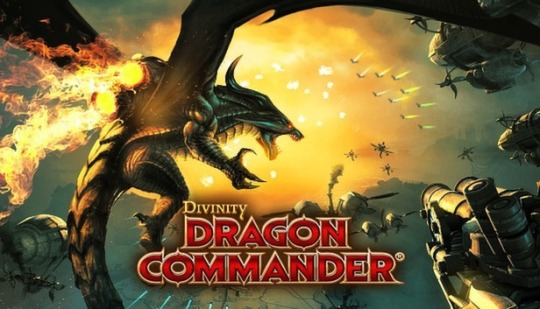
I like this game even though I'm not particularly great at strategy games. I enjoy the story quite a bit, but I'm undecided if I'll go back to it.
HM: Undernauts

A good dungeon RPG but I sort of just fell off of it. I played it for twelve hours or so, but I just kind of moved on to other games. I love the art style.
HM: Shining Song Starnova

I got a few hours into the game when my computer decided I didn't make any progress into the story and deleted my save. Idol Manager made me think about giving this game a go.
HM: Daggerfall: Unity

I am trying desperately to figure out why people like the Elder Scrolls games so much. This one is pretty good, but I didn't play it for any great length of time.
HM: Elder Scrolls Battlespire
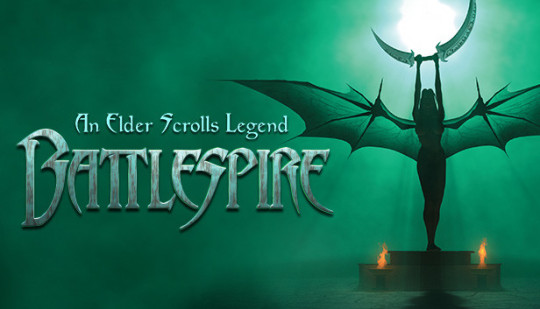
I decided I wanted to try an Elder Scrolls that is a more straight forward game compared to the more open world options. I didn't get far in it, but I do intend on giving it a more fair shake.
HM: Titan Quest
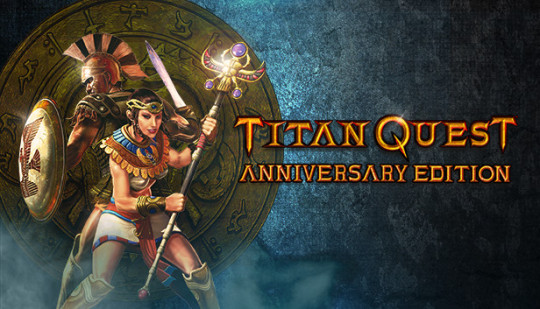
I wanted to play an Action RPG, and I was drawn to the more Greek inspired look than the typical dark fantasy games in the genre. Really I just want to play the expansion set in China.
HM: Torment: Tides of Numenera
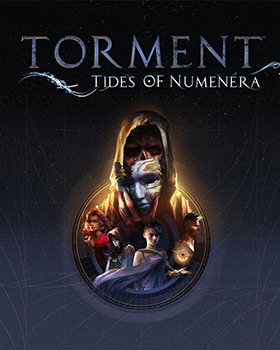
I watched the opening movie and I thought it was pretty cool. Sadly I didn't play beyond the opening because I decided to play Pillars of Eternity and Tyranny instead.
HM: Open X-COM

I finally decided to take a real shot at trying to play "classic" X-COM, every other time I just sort of bounced off it. This time however I seemed to actually get a nice handle on how the game actually plays, so who knows maybe in the future I'll actually go through the entirety of original X-COM.
2022 Propa
HM: Evil West

Started this one just a smidge too late for it to be eligible for proper best of the year consideration. A fun hack and slash to be sure, kind of a cowboy pastiche of a Devil May Cry. It's a hoot.
HM: Steelrising
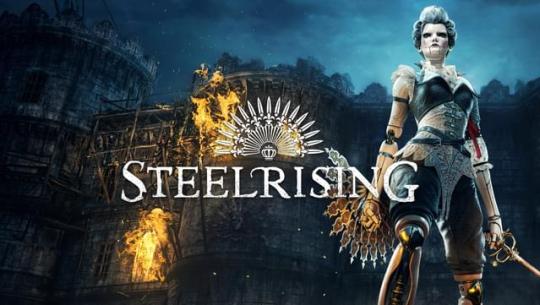
A soulsborne-esque yarn where you play as the robot bodyguard of Marie Antoinette during the robo-French Revolution. Sadly I didn't get particularly far before my attentions were drawn elsewhere.
HM: Conan Chop Chop

Decent little roguelite game.
HM: Card Shark
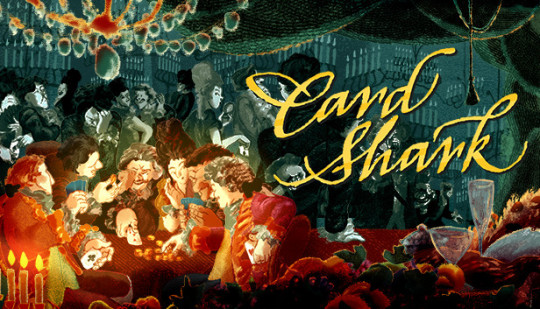
An interesting game with a unique selling point, being a game set in France's past and with the main gimmick being you're not trying to win the card games legitimately but by cheating better than your opponents. I should finish it some day.
HM: Pentiment
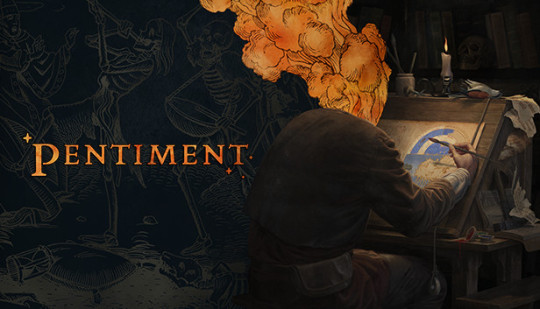
I love a good murder mystery. Sadly I had to let this one slide unplayed.
HM: Lunacid

You're spoiled for choice these days with Dark Souls derivatives, so it's nice to see someone go back and make a King's Field-like.
HM: River City Saga: Three Kingdoms

I enjoy beat-em ups and I thought a Kunio game set in the historical period of the Three Kingdoms sounds like a fun idea. I'm not sure I've played it enough to really pass judgment on it.
HM: Moonscars
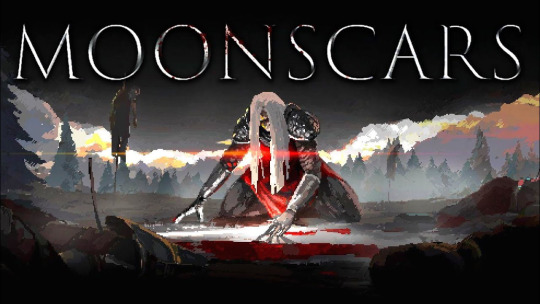
One of approximately a hundred Soulsy Metroidvania dark fantasy games that came out this year. I liked what I played though.
HM: Tarnishing of Juxtia

See above, also it reminds me a lot of Blasphemous more than any other game.
HM: Souldiers

Unfortunately all these Metroidvania games came out too close in my mind so I kind of had to let some of them fall to the wayside.
HM: Weird West

Yeehaw.
HM: Salt and Sacrifice

I don't care for the character art, but the gameplay is generally solid. I don't know if I'd recommend it over any other of these Metroidvania types, but I thought it was pretty good from what I've played.
HM: Soulash

A fun pixel-graphics roguelike that I wish I spent more time with.
HM: The Last Hero of Nostalgaia
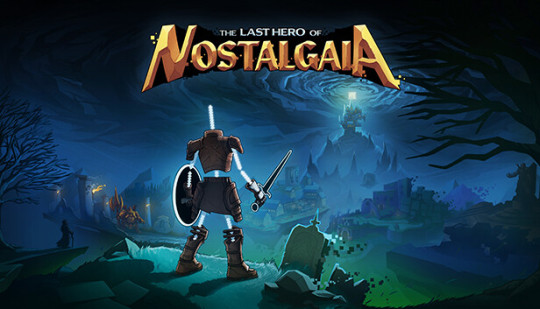
Allegedly a satire of Dark Souls and all those types, but I found it to just be a generally fun game to play. Maybe it really goes down hill, but from the demo I played it seemed pretty decent.
HM: Undecember

It's like if Diablo Immortal was a slightly better roguelite phone game. That sounds mean, but I actually quite like this.
HM: Thymesia
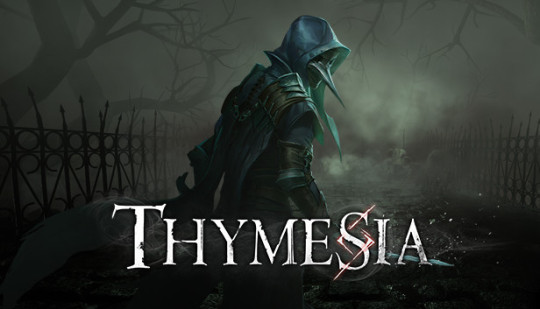
Bloodborne inspired game this time. Unfortunately I didn't play much of it because of all the other games vying for my attention.
HM: SD Gundam Battle Alliance

2022 was just positively cram packed with games that were generally pretty good and did what they set out to do quite well. This is a decent little Action RPG, and one day I hope to finish it.
HM: Valkyrie Elysium
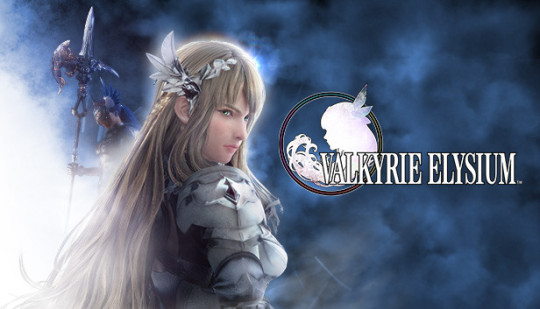
One of the dozen or so games Square Enix released with practically no advertisement. I like what I’ve played so far, it just fell onto the back burner and out of my priorities list.
#end of the year#honorable mentions#valkyrie elysium#sd gundam#weird west#baldur's gate#dark alliance#undernauts#shining song starnova#divinity#dragon commander#elder scrolls#daggerfall#battlespire#titan quest#torment#tides of numenera#x-com#XCOM#evil west#steelrising#conan chop chop#card shark#pentiment#lunacid#river city saga#moonscars#tarnishing of juxtia#souldiers
1 note
·
View note
Text
Lo and behold! Long time forgotten, now returned to divide and conquer!

Raen, my Dragon Commander drawn by one and only Ace.Zero I couldn't help myself and decided to base his outfit on historical garments of European emperors of 19th century. History nerd for the win!! Add a sparkle of draconic magic and flaunt here and there and voila! Raen, regal as I live in breathe. Burner of men. Emperor of Rivellon. Details under the cut
A memoir of an unfortunate beast-taming and eyes of an Ancient

Accomplished general, loving husband - and a badge for everything in-between!

Dragon-shaped polearm! Weapon choice inspired by one of the cutscenes

Did you know he is a Dragon??? Commander??

I tell you, I tell you, the Dragon comes

#divinity dragon commander#Divinity: Dragon Commander#oc: raen the dragon commander#commissioned art
6 notes
·
View notes
Text
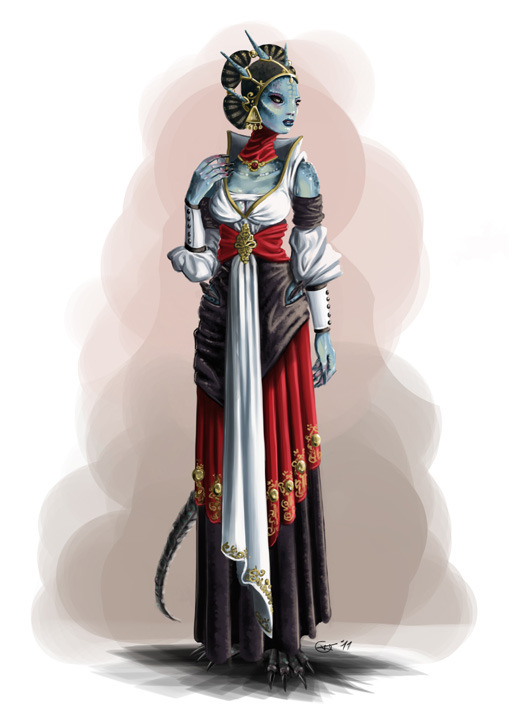


More Princess Camilla from Dragon Commander. She has an actual job other than "princess" (compared to the other princesses in that game), being that of a judge. She even has her own statue, which is cool. This all suggests to me that the House of Law was the original House in charge and had the original royal family of lizards (the lizards in that game are way more progressive than in D:OS2 and even want a republic. At least for player's empire of Rivellon.). I've worked some of this into some of my headcanon for Divinity, including for Sadha.
1 note
·
View note
Text
EXCUSE ME larian launcher why do you NOT have beyond divinity on there (objectively the best game you've ever made)
#like i'm joking but the divinity games pre-original-sin deserve more love#i even have them on steam come on#well aside from dragon commander i guess
1 note
·
View note
Photo
Nostalgic Reblog | July 21, 2019

Full Size: 1080x1920 & 2160x3840
#cullen#cullen rutherford#commander cullen#divine victoria#leliana#sister nightingale#dragon age: inquisition#dai#nostalgic reblog
200 notes
·
View notes
Text
Starting Divinity: Dragon Commander.
0 notes